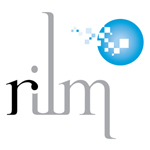Submittal information
Submissions
Before you decide to submit your article, please take a look at our release form. By submitting your article, you agree to sign this form if your article is accepted.
We do not normally consider articles that have already been published in English, and we cannot consider articles that are currently submitted for possible publication elsewhere.
Please do not submit your doctoral thesis unless it’s revised, made more concise, leaves out material that knowledgeable readers already know (such as a literature review to prove you know it), and you are convinced that it has something new to the universe of ideas. You should read articles that PNM has published—there are a great variety of them.
Please submit the entire document—text and graphics—as a .pdf file by email. If it is accepted, we will then need text and graphics as described below. If none of these are possible for you, please contact us.
The format for style in footnotes, bibliographies, and other matter should follow one of those described by the most recent edition of the Chicago Manual of Style, or see any recent issue of Perspectives of New Music).
Please submit your article to the address indicated on our contacts list.
A Note about Referee Reports
We've noticed that, for some authors, expectations have recently changed regarding referee reports. The practice here at PNM, as in our past, is to strive for respectful, polite, but truthful reports. We will not expect our referees always to provide lengthy essays, which we think would be unsustainable. Who could agree to report on more than a few submissions? But reports should be helpful when this is possible. When a revision might be a solution, we would expect lengthy, detailed specifications of things to be improved.
Pretty often a submission that's accepted here is so good that it needs no changes, and that's ideal for us, but we routinely work with authors to fix typos and other minor issues.
In our view, our task is to publish books of articles that are truly interesting or exciting, especially for composers, and often original or creative in some respect. We want people to want to read them.
Accepted Articles
Once a text has been accepted for publication, we will require the following. All files may be sent as email attachments (singly or zipped) or via a download site to our production address.- All copyright clearances, as specified on our release form.
- A signed copy of our release form.
- The article text (no graphics), notes, and bibliography in one of the below formats.
- The article graphics in one of the below formats.
- A separate file containing captions including any required copyright notices.
- A PDF copy of the entire article to be used as a reference copy for typesetting decisions.*
- Your bio. (50–100 words is typical.)
We can accept any of the following formats: OpenOffice (.odt) (preferred), Microsoft Word (.doc, .docx), Rich Text Format (.rtf). Please convert LaTeX files to one of the above formats before submitting.
Graphics formats:For graphics, please submit a 600dpi image in one of the following formats: .TIF/.TIFF (preferred), .EPS, .PDF, .JPG/.JPEG, .PNG. We are also able to accept Finale (.MUS) and Sibelius (.SIB) files.
* Be advised that you need not spend time on the exact placement of your examples in your text document, as we have to re-size and reposition everything to fit our page size. We use OpenOffice software for typesetting. We will try to honor any requests for special formats integral to the meaning of your text, but by sending us your text, you agree that our decisions in matters of house style and format will be definitive.↩
Site feedback may be sent to webmaster





